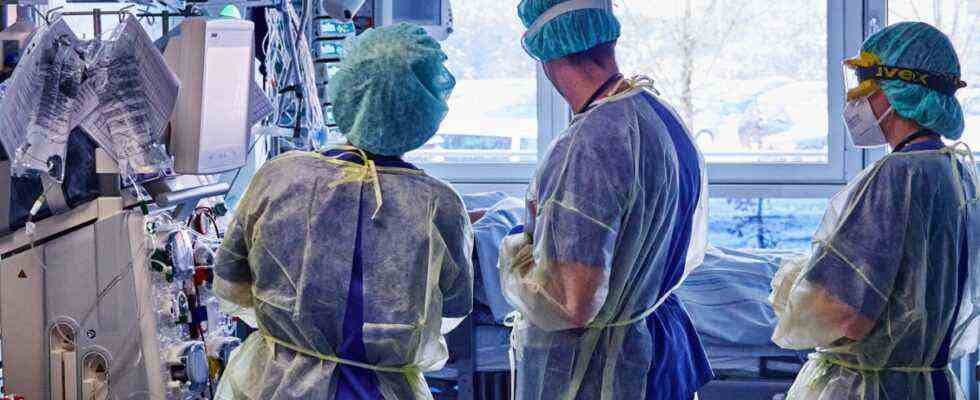Nursing staff from other wards and specialist departments have been supporting us in the intensive care unit since November: One of the anesthetists is with us on every shift. Since the operating theater is now running at reduced capacity again, because only vital and non-postponable interventions are carried out, staff there are accordingly free. In addition, there is one nurse per shift who actually works in one of the different normal wards in the clinic – general surgery was on in November and trauma surgery in December. And then we also have regular support from our colleagues in the cardiac catheter laboratory as well as interns and external helpers on the ward every now and then. Above all, the exchange with colleagues from the normal ward is something that I think is great – if you will, that’s one of the few good aspects that you can draw from Corona.
It is like this: Hardly anyone is free from prejudices or clichés about others – neither are we caregivers. In the eyes of many in the normal ward, we intensive care patients are arrogant, snobbish and already have a privileged position: only caring for two to three patients – how stressful can that be?
On the other hand, we intensive students sometimes make statements like: “Mei, they don’t have much to do with patient care anyway and can therefore sit comfortably together over coffee – after all, their patients are not that sick”. Or: “The little rounds you go with, you just have to stand sideways anyway and nothing more.”
Julia Rettenberger works as an intensive care specialist in the Ebersberger Kreisklinik.
(Photo: Peter Hinz-Rosin)
But – surprise – none of this is true. When the colleagues from the normal ward are on duty with us, many of them are always amazed at how much work it actually takes to care for two or three patients and how much more technology we use. Devices beep everywhere and many of our patients are littered with entrances and all sorts of other tubes.
On the other hand, we intensive care workers notice that the colleagues in the normal ward have a great deal of specialist nursing knowledge. They are experienced nurses who know exactly what is important. A simple example: the know-how how to handle an overweight patient from a kinesthetic point of view in order to get them freshly bedded without problems. We don’t have to explain something first or use a lot of energy, but it goes zack-zag! Preparing antibiotic therapies and other medications also works right away. This support is worth its weight in gold for us.
Thus, the actually more than unpleasant Covid situation also creates something good among us nursing staff: More mutual tolerance and respect for the work that each individual nurse does in the house.
Julia Rettenberger is an intensive care nurse. In this column, the 28-year-old tells every week about her work at the district clinic in Ebersberg. The collected texts can be found under sueddeutsche.de/thema/Auf_Station.

